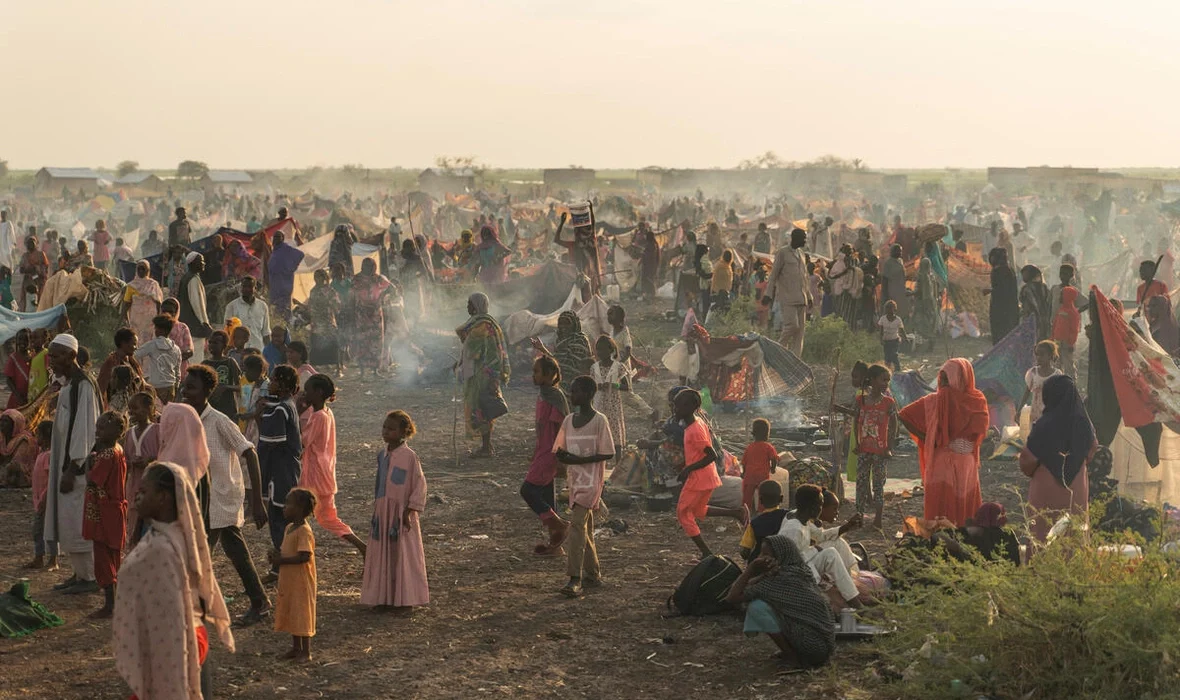Sudan is bleeding — and the world is watching in silence. What began as a power struggle between rival generals in April 2023 has spiraled into one of the worst humanitarian crises of our time. Civilians have become targets in a war fueled not only by internal power lust, but also by international complicity and deafening global indifference.
The Grim Numbers Behind the Headlines
According to humanitarian and independent reports, over 150,000 people have died in Sudan since the conflict began. In Khartoum state alone, 61,000 deaths have been recorded, 26,000 of them directly caused by violence. Yet these figures do not include the thousands who have perished from starvation, thirst, and lack of healthcare.
More than 1,200 children under five died between May and September 2023 in just one region — Sudan’s White Nile state — due to measles and malnutrition. Today, over 700,000 children are battling severe acute malnutrition, a death sentence for many without medical intervention.
Sudan’s healthcare infrastructure has crumbled, with 80% of hospitals in conflict zones non-operational. Widespread outbreaks of cholera, dengue, malaria, and measles have torn through camps with little to no access to medicine or clean water.
The Largest Displacement Crisis in the World
Sudan now suffers the grim distinction of hosting the largest displacement crisis on the planet. More than 12 million people have been uprooted from their homes. 3 million of them are children. According to the International Organization for Migration (IOM), 20,000 people are displaced every day, half of whom are under 18.
This is not a slow-burning emergency — it is a raging inferno, and the world is turning its back.
Famine and Death by Neglect
With famine already confirmed in 11 regions — including North Darfur’s Zamzam Camp — over 25 million Sudanese are facing extreme hunger. Humanitarian agencies warn that Sudan is on the brink of a full-scale famine, yet little aid has arrived. Entire towns and camps are under siege, especially in El Fasher, where humanitarian access has been deliberately blocked.
The World’s Deafening Silence
The suffering in Sudan has received shockingly little media coverage, particularly in Western outlets. The conflict lacks the political and economic incentives that attract international attention. There is no global campaign, no sustained outrage. The people of Sudan are dying not just from bullets, but from neglect and silence.
Major news networks have reduced Sudan to a footnote. There has been no coordinated global media outcry, no widespread coverage of the mass killings, forced displacements, or ethnic cleansing campaigns reminiscent of the Darfur genocide.
The UK and Its Role: Accusations of Complicity
Among the international actors under scrutiny, the United Kingdom faces mounting accusations. Critics allege that the UK has deliberately muted criticism of the United Arab Emirates (UAE), a country widely reported to be arming and funding the RSF.
Despite growing evidence that the RSF has committed war crimes and ethnic cleansing, including targeted killings in Darfur, British diplomacy has remained notably quiet on the UAE’s role. Whistleblowers and humanitarian workers have pointed to UK involvement in shaping Sudan’s transitional governments, especially during the civilian-led administration of Abdalla Hamdok, which many now claim was heavily influenced by British and European agendas.
The UK also took part in the recent Kenyan-brokered negotiations, engaging with RSF leaders and groups linked to the civilian coalition known as Taqaddum. Critics argue this provided undue legitimacy to a militia accused of genocide and rape, while sidelining voices of true democratic resistance.
The Price of Inaction
Sudan is being erased — one family, one village, one camp at a time. And the world’s failure to act is a stain on our collective conscience. Every day that passes without a coordinated humanitarian response, every shipment of weapons that slips through to the RSF, every news cycle that ignores Sudan — adds another layer to this shame.
The international community must:
- Demand immediate ceasefire and humanitarian access, particularly in famine-stricken areas.
- Publicly pressure the UAE and any actors found to be arming or funding militias.
- Investigate and expose complicity, including Western powers that have failed to uphold human rights.
- Flood media platforms with Sudan coverage — not in occasional reports, but as a consistent and urgent priority.
History Will Remember
Sudan is not dying in darkness. It is dying in plain sight — and those with the power to help are choosing not to. History will remember this moment. It will remember the cowardice of world leaders, the silence of major newsrooms, and the complicity of those who stood by.
But it will also remember those who spoke out.
Will you?


